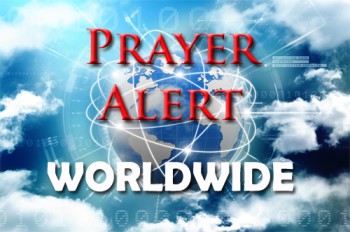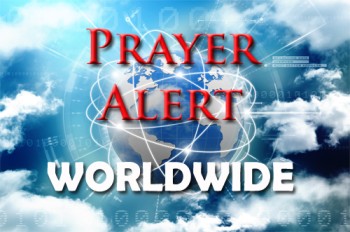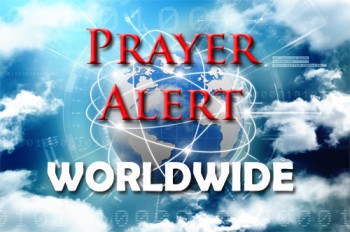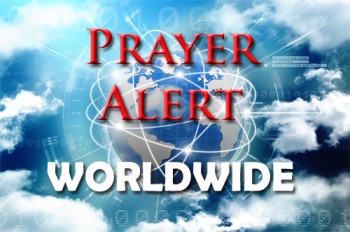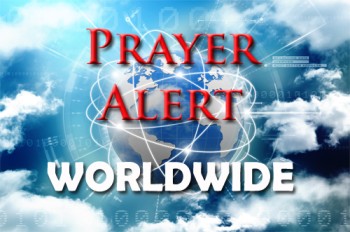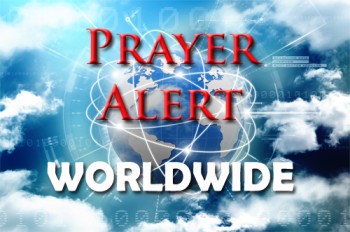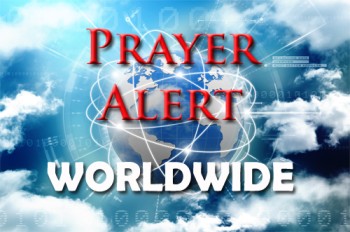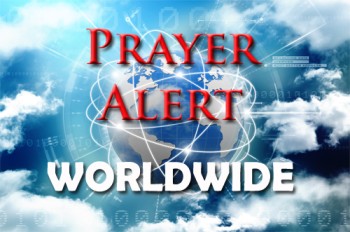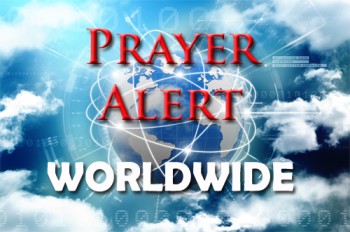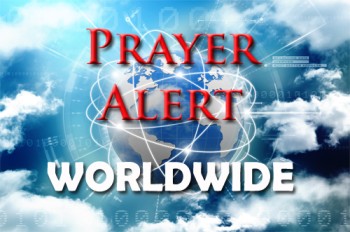Displaying items by tag: Pacific
New Zealand: ban on e-cigarettes announced
Responding to concerns over the rapid rise in youth vaping, prime minister Christopher Luxon’s government plans to ban the use of disposable e-cigarettes by minors and increase penalties for anyone selling them to under-18s. Announcing this decision, the associate health minister stressed that e-cigarettes remain ‘a key smoking cessation device’. Retailers will face fines up to 100,000 NZ dollars (£47,000) for selling vapes to minors, and individuals up to 1,000 NZD. Regulations will also prevent e-cigarettes from being sold with images or enticing names that might appeal to young people. This move follows the recent decision to repeal the world’s first smoking ban, passed by the previous government, which aimed to pave the way for a smoke-free generation, after backlash from researchers and campaigners over its risk to indigenous people.
Australia: bishop charged with rape
Bishop Christopher Saunders has been charged with rape and a string of sex offences - some against children. The 74-year-old was arrested on 21 February, after parallel investigations ordered by police and the Pope. Mr Saunders, who denies the allegations, was refused bail. He is one of the most senior Catholics to face charges of this nature. The offences he is alleged to have committed include two counts of rape, 14 of unlawful and indecent assault, and three of child abuse. For years, he has faced allegations of sexual abuse made by several Aboriginal men from communities in his parish. When the accusations were first aired in 2020, the initial police investigation was closed without charge. However after a historic inquiry was ordered by the Pope - and its 200-page report subsequently leaked to the media last year - police began a new investigation.
Australia: statues vandalised in Australia Day protest
In Melbourne, early on 26 January (Australia Day), a century-old statue of Captain James Cook was cut down and a Queen Victoria monument vandalised with red paint. Australia Day commemorates the anniversary of Britain's first fleet landing in 1788, marking the start of the colonial era. The Cook statue, which commemorates his 1768-1771 voyage charting Australia's east coast, has a history of being targeted on or around Australia Day. The vandals left the message 'The colony will fall' on its base. Victoria premier Jacinta Allan condemned the vandalism, stating it had no place in the community, and efforts would be made to repair and reinstate the statue and clean the Queen Victoria memorial. While polls indicate that approximately 60% of people support celebrating Australia Day, many view it as inappropriate due to its association with the displacement of Aboriginal and Torres Strait Islander lands and cultures. Protests against 'Invasion Day' have grown, and some people boycott the holiday.
Australia: apology to thalidomide victims
Prime minister Anthony Albanese has issued a national apology to survivors of the thalidomide scandal and their families, marking the government's first acknowledgment of its role in the tragedy. Thalidomide, initially a sedative but widely used as a morning sickness drug in the 1950s, led to severe birth defects in at least 10,000 babies globally. A report in 2019 revealed that 20% of cases could have been prevented with earlier action. Survivors have long sought acknowledgment and compensation, pointing to the examples set by Canada (in 1991) and the UK (in 2010). 140 survivors have registered for a financial support programme which gives a one-off payment of £260,000 each, with subsequent annual payments of between £2,600 and £30,000. Mr Albanese has now reopened the application process for those who might have missed it previously.
Australia: historic referendum on aboriginal rights
On 14 October, Australia will vote in a historic referendum that cuts to the core of how it sees itself as a nation. If successful, the proposal - known as the Voice - will recognise aboriginal people in the constitution, while creating a body for them to advise governments on the issues affecting their communities. Advocates say it Is a ‘modest yet profound’ change that will allow Indigenous Australians to take a rightful place in their own country - which has often dragged its heels confronting its past. But those campaigning against it describe it as a ‘radical’ proposal that will ‘permanently divide’ the country by giving First Nations people greater rights than other Australians - a claim legal experts reject. Australia is unusual among settler nations to have never made a treaty with its indigenous peoples. It first voted on whether to acknowledge them in the preamble of the constitution back in 1999. The reform - which was one of two amendments tied to the referendum over whether to become a republic - failed.
Australia: plans for World Prayer Assembly
Churches and prayer and mission ministries across Australia, New Zealand and the Pacific Islands have come together in unprecedented unity that has not been seen for decades, with the vision ‘A new wave of glory to cover the earth, as the waters cover the sea’ (Habakkuk 2:14). Sixty days ahead of the World Prayer Assembly in Perth, planned and spontaneous prayer is already taking place across the cities. There are reports of the wave already sweeping through, and there is a lively air of expectancy as to what God is doing through this global gathering. Before it, the leaders have called for 21 days of prayer and fasting (from 28 August), contending for a ‘wave of the knowledge of the glory of God’ to engulf the globe, for an awakening across Australia with millions finding Christ; and a global awakening with billions finding Christ.
Australia: aborting Down’s Syndrome foetuses
Western Australia health authorities approved 76 late-term abortions last year, but new legislation being introduced to parliament will allow abortions up to birth. All that will be needed is a second doctor agreeing the abortion is justified. 71 of the abortions last year were for suspected Down’s Syndrome. On the first day of parliament this year the premier said his government will ‘modernise Australian abortion laws, making safety, privacy and dignity an absolute right’. Many have now signed a petition calling on the government to show Western Australia has compassion for both pregnant mothers and unborn children, and to ensure that any purported modernisations of the law include ending the disability discrimination that has seen so many lives taken of those with Down’s Syndrome. They want the legislative council to ensure the safety, privacy and dignity of unborn children suspected of having the syndrome. See also
Australia: psychedelic therapy
Australia's medicines regulator has approved using psychedelics to treat depression and PTSD. This will allow magic mushrooms and ecstasy tablets to be prescribed as medicines at a national level. Ecstasy was developed in 1912 as an appetite suppressant in the USA, but was outlawed in the 1970s. It entered Australia as an illegal party drug in the 1980s, giving increased energy levels, empathy, and pleasure. How Australia rolls out clinical prescriptions for both drugs will be closely watched. Initial access to the drugs will be limited and costly. Many say it’s a landmark moment, but the Medical Association and the College of Psychiatrists have expressed serious concerns about psychedelic treatments. A professor of addiction medicine at the University of Sydney wants larger-scale studies and better research. He warned of known risks of fear, panic and re-traumatisation; and unknown risks of long-term side effects with potentially very limited benefits.
Repatriation of Australians from Syrian refugee camps
Nine women and seventeen children are taking the Australian government to court, arguing that Australia has ‘effective control’ of their detention and the power to set them free from Syria’s Roj refugee camp. These Australian wives, widows, and children of slain or jailed IS members claim a legal right to return to Australia. Most are in squalid and violent detention camps, some held for four years. Children have untreated shrapnel wounds, malnourishment, and serious mental illnesses. Some were born in the camp and know no life outside it. Save the Children Australia say that legal action was a last resort, but they were left with no choice but to take Australia’s government to court. Pray that the US-backed Kurdish SDF army and the refugee camp officials will actively cooperate in the release of these Australians as they did for other countries, including Denmark, USA, Germany, France, Sweden, and the Netherlands.
Australia: babies born alive after abortion
Every week in Australia, babies survive abortions and are left to die without medical assistance or even pain relief because it has been decided by adults that they do not deserve to live. In response to this, three senators have presented a bill to parliament calling for legal protections to ensure that babies born alive after a termination procedure are given the same medical treatment and pain relief as other babies born at the same gestational age and clinical condition. The Australian Christian Lobby has drafted an email to the prime minister and the federal senate, requesting their support for this bill and are encouraging people to add their name to the document.
